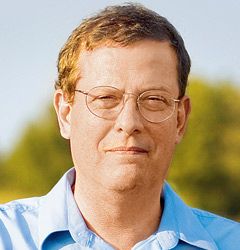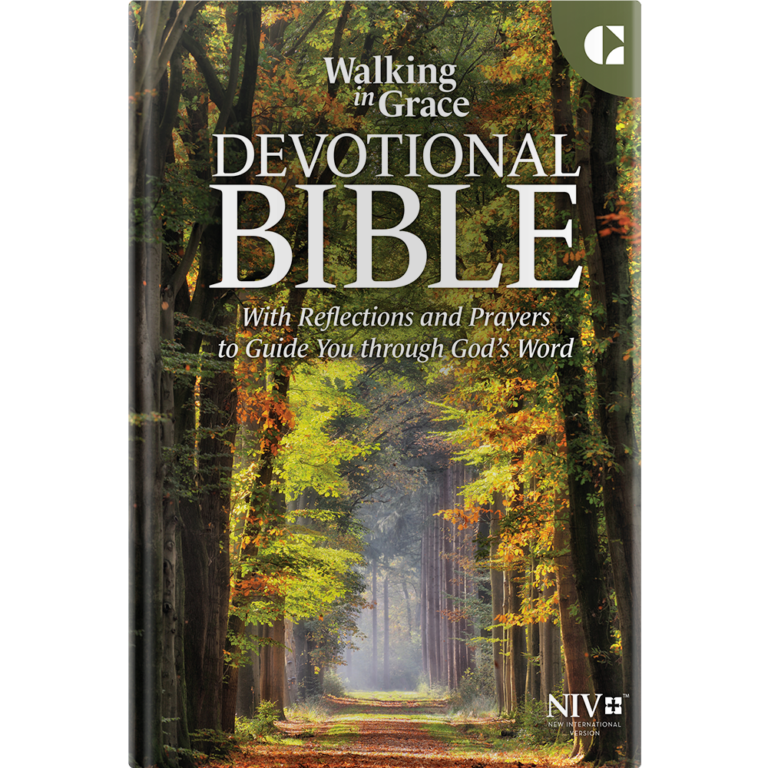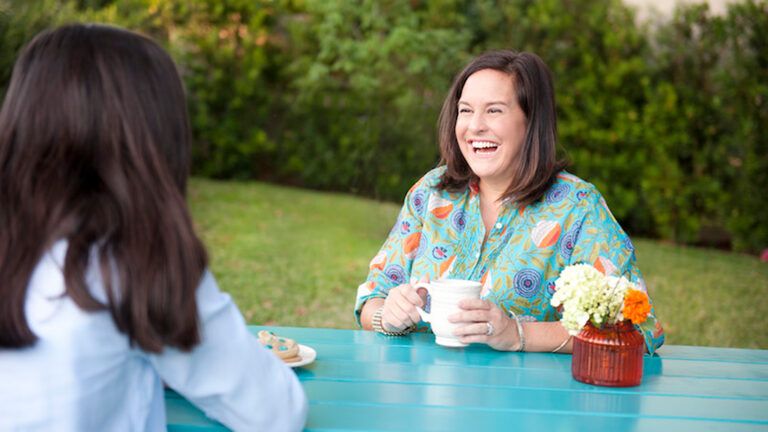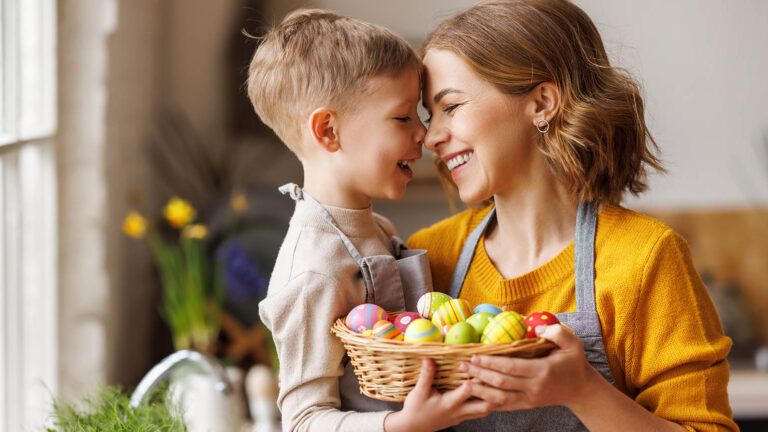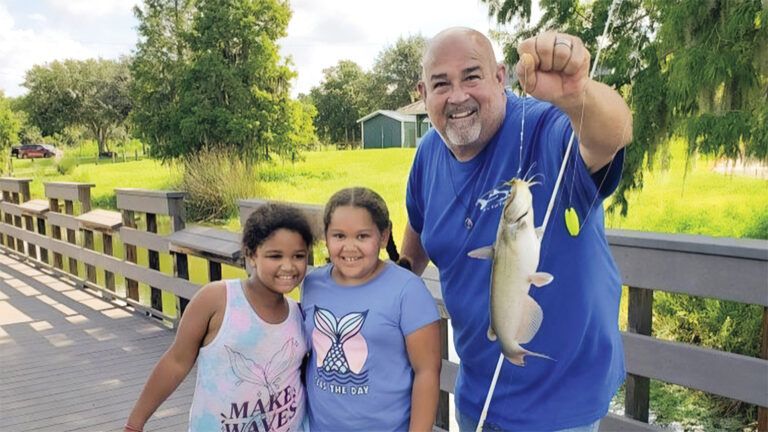In 15 years as an emergency room doctor, I saw thousands of patients. I gave each one the very best care I could. But there were some patients I could never get out of my mind. You could say they’ve haunted me.
Almost every day I think about one little girl I met early in my medical training. It was a “triple H” summer day: hot, hazy and humid. “Elderly people and people with illnesses should stay indoors,” the TV weatherman had warned that morning. A few hours later, I started my shift in the pediatric ER at a big city hospital.
A rescue unit radioed ahead to tell us that they were on their way. “Eight-year-old female. Severe asthma attack,” the EMT said. In the small area reserved for asthma cases, there were already 15 children—and only eight beds. A nurse prepped the trauma room for the arrival.
The ambulance crew burst through the ER’s double doors with the patient. A paramedic transferred the little girl to a trauma gurney and quickly put a mask over her mouth and nose to force air into her lungs from an Ambu bag. Her airways were so tight it was nearly impossible to compress the bag. “Matthew,” the team leader called to me, “go ahead and intubate.”
I glanced at the paperwork. The girl’s name was Etta. She and her brother had gone to their neighborhood playground to run through a sprinkler and cool off. But as soon as she started to exert herself, she had the attack.
“Etta,” I whispered, leaning down so I could look right into her frightened eyes, “I’m Dr. Matt. I’m going to put a tube in your mouth and get you breathing right.” Her left hand rested in mine. I felt a weak squeeze. “I won’t let anything bad happen to you, sweetheart,” I promised.
“Quiet!” the team leader yelled. He held his stethoscope to Etta’s chest. “Give her a breath, Matthew.” I squeezed down on the bag. Etta had on a bright green bathing suit. On its front was a smiling appliquéd whale, blowing a spout of water.
I wanted to watch that whale lift up as soon as I forced air into her lungs. But the whale stayed put. Despite the intubation and the efforts of the whole pediatric emergency department, Etta died. I had broken my promise to her.
It took a long time before I grasped what had killed Etta: air pollution. Her asthma was probably controllable otherwise. By then, I ran an ER in a small seaside town in New England. I imagined the air there was as clean as you’d find anywhere.
But something was terribly wrong. I read up on the statistics. A single power plant in Massachusetts caused 1,200 ER visits, 3,000 asthma attacks and 110 deaths a year.
In my own small community, more and more people were coming to the emergency room with asthma and other chronic illnesses. Despite all our advances in medicine, my patients were sicker than ever. And I wasn’t doing enough to help them.
{C}
One night, although I was drained after a 24-hour shift, I couldn’t sleep. I tossed and turned. I couldn’t get the patients I’d seen that day out of my mind. My thoughts shifted back more than a decade, to Etta. “Matthew, what’s wrong?” my wife, Nancy, asked.
“All this asthma and chronic disease,” I said. “It’s not the patients. It’s the environment. The air we breathe is making us sick.”
I needed guidance. I found myself praying more intensely than ever. I thought about the Psalms, where I’d read, as a child, that God makes the rain fall, that he hears the cry of a hungry blackbird. That he sends the snow and wind, and knows each star by name.
One of my greatest joys as a dad is going outside at night with my kids, Clark and Emma, and looking at the stars with them. I pray that they’ll be able to share that joy with their children someday.
But I know that bright starry skies—and fewer cases of asthma—will only be seen in the future if the air is less polluted. Lord, how can I do more to help people? I prayed. How can I be a better servant?
The answer surprised me: I had to start looking at the planet as though it were my patient too. To be a good doctor, I had to be a good steward.
Weigh in.
The first step in treating my new patient, planet Earth, was for me to take more responsibility for the way I lived. When my patients go on diets to improve their health, we start with a weigh-in.
So my family started with a weigh-in too: an energy audit. We had a big house and a couple of nice cars, but I thought we were pretty “green.”
We weren’t. Looking at our most recent electricity, oil and gas bills and adding the quantities of gasoline we used in our cars and other means of transportation to calculate our usage, we were shocked by what we discovered.
The average Italian household uses about 1,800 gallons of gas a year. The average American household uses 4,483 gallons a year. My family wasn’t using much less. We needed to make some basic changes as energy consumers.
Keep it simple.
Learning how much energy our family used came as a surprise. But just as big a surprise was the realization that green values weren’t anything new.
In a way, I grew up with those values on a Maryland farm, surrounded by fields and low rolling hills that seemed to go on forever. I can still summon up the blissful feeling of lying in the cool, soft grass and looking up to watch birds flying south overhead in the fall. Life’s pleasures were simple, but deep.
So was my grandmother’s advice: Whenever I said I wanted to buy something—a new toy, usually—she’d urge me to wait a month. “By the end,” she predicted, “you’ll have forgotten it, or you’ll no longer want it.”
She was right. I didn’t think of Grandma as an environmentalist (I didn’t know what the word meant back then), but she understood one of the core values of stewardship: Surrounding ourselves with stuff we don’t need wastes the planet’s resources and doesn’t make us any happier.
Our audit made it clear: We had too much stuff. We hardly ever used most of the long-forgotten sporting goods, outgrown clothing, hastily purchased cleaning products and electric gadgets around us—and all of it could wind up in a landfill someday.
We matched up many of these things with people who would use them. We gave away more than half of what we owned, and we don’t miss a thing. Now, whenever I’m tempted to buy something, I wait a month, just like Grandma suggested. I also ask myself: “Will buying this bring me closer to God?” The answer is usually, no.
Does a family of four need 3,500 square feet and four bathrooms? I wondered. Our audit prompted us to move into a place less than half the size. We had reservations: What about comfort and privacy?
Turns out, living in closer quarters has made our family closer. While Nancy grades essays at the kitchen table, I read and the kids do homework. Quietly, but together. Huge living spaces literally keep people apart.
Simplifying means having and wanting less. It doesn’t mean feeling dissatisfied or unfulfilled. My greatest treasures—my family, my faith—are not my possessions. Real treasures don’t rust or rack up credit card debt.
Cut back.
Next, we looked for ways to cut back on fuel consumption. Finding the most energy-efficient appliances helped. So did switching from incandescent light bulbs to compact fluorescent ones.
The whole family got into the habit of turning off the lights whenever we left a room. You might not think that would make a difference, but it all adds up. Our electric bill—only twenty dollars a month—is proof.
We were shocked to learn how much energy the dishwasher and dryer eat up. We wash dishes by hand now and hang laundry on a clothesline (not only does this use much less energy, it also makes our clothes last longer). Does this take more time? Of course. But when we do these chores as a family, they don’t feel like chores because they give us more time together.
Rest up.
I grew up with a “no work” Sabbath. I enjoyed it, and then I lost it. Today, I’ve reclaimed it. Sundays in our family are now reserved for rest, reflection and prayer. Nancy takes long prayer walks. Clark and Emma finish their homework the day before. We save so much energy—no last-minute trips to the store, no mad dashes to the movies—and we gain so much peace.
When we, as a family, changed our habits, we wanted the environment to benefit. We didn’t realize how much we would benefit. Nancy and I came home from work recently and found Clark and Emma deep in conversation while hanging laundry. They don’t just take pride in their energy-saving duties; they also enjoy them.
My patients taught me that my work as a caregiver cannot stop at the ER doors. It has to extend to the Earth itself. We’re all connected, and the Earth is our common bond. Our actions, great and small, really can make a difference.
If I can help make a cleaner, healthier world, it’s not just for me, my wife or my kids. It’s also for God. And for that eight-year-old girl whose hand I held in mine that summer day all those years ago.
